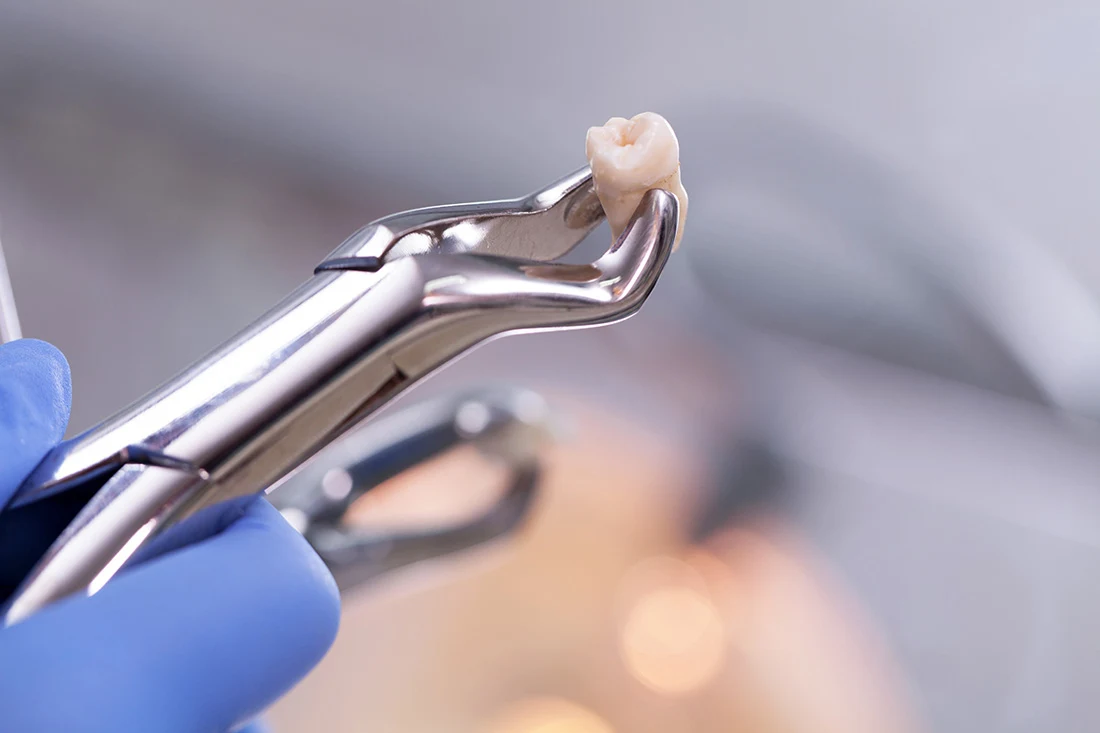
Tooth Extractions in Windsor, CO
When problematic teeth are causing oral health issues, you have options. While preserving your natural teeth is always the goal, sometimes extractions are the best way to keep your smile healthy.
Why might I need an extraction?
We always prioritize saving your natural teeth but in some cases, removing a problematic tooth is the healthiest option. Severely damaged or infected teeth can lead to pain, spread of bacteria, and even systemic health issues if left untreated. In situations like these, the best way to protect your smile is to remove the source of the infection.


The Benefits of Dental Extractions
Relieves Pain
If you're dealing with painful teeth or severe tooth damage, an extraction removes the source of pain and restores your comfort.
Treatment Prep
Extractions pave the way for restorative treatments, such as dental implants or dentures, ensuring a strong foundation for long-term dental solutions.
Better Oral Health
Removing damaged or problematic teeth helps protect your oral health, preventing further complications and promoting overall well-being.
The Extraction Process

Treatment Plan
Whether you need a single extraction or several teeth removed in preparation for further treatments, your personalized treatment plan will be tailored to your specific needs. Your dentist will review all available options with you, ensuring you’re fully informed before moving forward in the way that feels most comfortable for you.

Procedure Prep
Your dentist will then numb the area with local anesthesia to keep you comfortable throughout the process.

Extraction & Healing
The extraction itself typically takes just a few minutes. Once the tooth is removed, your dentist will clean out the infected tissue in the extraction site, rinse, and place a bone graft/suture if needed. Recovery usually lasts 1-2 weeks, and you’ll be provided with detailed aftercare instructions for a smooth, speedy healing process.
FAQs
Frequently Asked Questions
Check out these frequently asked questions, or call us to speak with our team.
Tooth extractions may be needed for patients dealing with extremely severe cavities, significant damage from trauma, or a tooth infection that can’t be resolved with root canal therapy. While a lot of teeth can be saved through crowns or root canals, sometimes extraction is the only viable option.
The most common reason for tooth extractions is improper wisdom teeth growth. If your dentist determines that your wisdom teeth are impacted or not erupting correctly, extraction may be recommended to protect the health of your other teeth. Not everyone requires wisdom teeth removal, so it’s important to consult your dentist to determine if yours pose a problem.
Severe periodontal disease that has loosened a tooth from the gums may also necessitate an extraction.
Thanks to numbing and modern techniques, you won’t experience pain during or immediately after your extraction. However, within a few hours, symptoms like pain, swelling, bruising, and bleeding may develop. These symptoms usually peak within the first 2-3 days but will gradually subside as healing progresses. It’s best to stick to soft foods for 5-7 days after your procedure to avoid aggravating the area.
Full healing generally takes 1-2 weeks. By following the recovery instructions provided by your dentist, you can help speed up the healing process. If you experience significant pain or discomfort beyond 1-2 weeks, it’s important to contact your dentist for a follow-up evaluation.
In many cases, we may recommend a bone graft following an extraction. A ridge preservation graft can fill the gap left by the extracted tooth, helping to maintain the width and volume of your jawbone. This not only protects against bone loss but also creates a stable foundation for a potential dental implant in the future.

